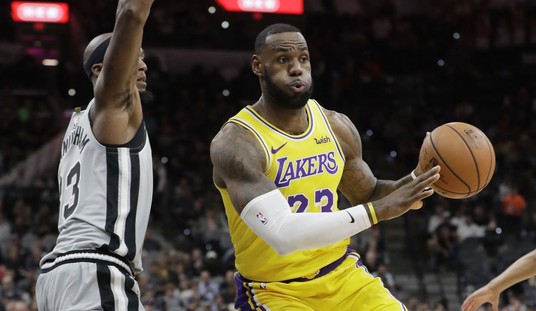King Charles III ascended to the throne of England on Saturday amid glorious (and unbelievably expensive) pomp and circumstance. It took eight months of planning, rehearsing, and fretting to pull off the spectacle that we’re told by Buckingham Palace costs in excess of 100 million British pounds.
England is in the midst of a financial crisis with labor unrest and high inflation. Cognizant of that, Charles put on a much more modest show than his mother, Elizabeth II. But you can’t have circumstance without pomp, so Charles II was pulled through the streets of London in a spectacular golden carriage drawn by six white horses — just like the fantasy many American and British girls had when they were young. Trailing behind were thousands of British and Commonwealth soldiers resplendent in their many and varied uniforms.
What’s the point?
I get the tradition. I get the history. What I don’t get is the idea that any grown-up country should have done away with 247 years ago: who your daddy and mommy were should determine your fitness for high office and your station in life.
It’s not just royalty. In Great Britain, there’s an entire interlocking structure of families given royal grants and titles — duke, marquess, earl, viscount, and baron — who are automatically given a seat in the House of Lords. While the House of Lords isn’t as powerful as it once was, you don’t even have to know someone to get a seat. All you need is a title handed down to you by your daddy.
The age of believing “blood” makes someone superior to another died with the discoveries of the double helix, the twisted-ladder structure of deoxyribonucleic acid (DNA), by James Watson and Francis Crick in 1953. In fact, given all the inbreeding of the Windsor line — once known as Saxe-Coburg and Gotha — Charles is lucky not to have been born with any birth defects.
But the coronation of Charles III represents the last gasp of an elitist element of society that once tried to breed humans as they bred their horses. It’s silly in retrospect. Even sillier is the idea that in the 21st century, a country should finance a “royal family” so, well, royally.
Following his mother’s death, Charles inherited crown assets worth up to £15.2 billion ($19.1 billion). On that massive sum, he didn’t have to pay the 40% inheritance tax a member of the general public would have had to. Add to that the king’s regular income, starting with the sovereign grant – an annual payment from the British government amounting to £86.3 million ($108.5 million) this year. Another key source of income flows from the Duchy of Lancaster estate, which produced £24 million ($30 million) in income for Charles in the most recent financial year. He is also the beneficiary of a $500 million multi-year renovation of another of his properties – Buckingham Palace – that the public is bankrolling.
The fascination that many Americans have with the British royal family is anti-republican and undemocratic. Nancy Reagan — God bless her — refused to curtsy when she met Queen Elizabeth — a violation of protocol that had the British tabloids aghast. When then-Prince Charles visited the U.S. that April, the wife of the chief of protocol curtsied in greeting him. This set off protests across the country on the grounds that thousands of Americans died so that citizens of our country would never have to show subservience to anyone again.
Yes, it matters. And placing one over many based on nothing more than birthright needs to be ended — just as the coronation, the symbol of that archaic way of thinking, has been ended in almost every other Western industrialized nation.
It’s ironic that the country claiming to be the world’s oldest democracy has clung so fervently to the tradition. Nearby Norway repealed coronations in 1908 because it was seen as an undemocratic event. Denmark ended coronations after 1840 following its shift toward parliamentarism. Spain’s last formal coronation was all the way back in 1555, while Belgium’s monarchy doesn’t even have a crown with which to conduct a coronation. The British monarchy, on the other hand, has a plethora of (often violently looted) royal jewels, including the Koh-i-Noor, a 100-plus-carat symbol of imperial plunder from India.
A recent poll in England shows that a sizable majority still support a monarchy. But there’s a generational divide. The YouGov poll found that “while backing for the crown stands at 79% to 15% among the over-65s, the youngest Britons are split — only 36% want to keep the monarchy compared to 40% who want to have an elected head of state.”
Charles will not be the last king of England, Wales, Scotland, and Ireland. As an institution, the English monarchy will survive for a while, although the questions about its relevance to Great Britain will continue to grow.
I will probably not live to see it. But when the end of the British monarchy happens, dance a jig and think of me.
𝐓𝐡𝐞 𝐑𝐞𝐜𝐨𝐠𝐧𝐢𝐭𝐢𝐨𝐧
The King turns to each of the four points of the compass before The Archbishop of Canterbury proclaims him the ‘undoubted King’. The congregation shouts ‘God Save King Charles!’. pic.twitter.com/g6PiBLVjKu
— The Royal Family (@RoyalFamily) May 6, 2023










Join the conversation as a VIP Member